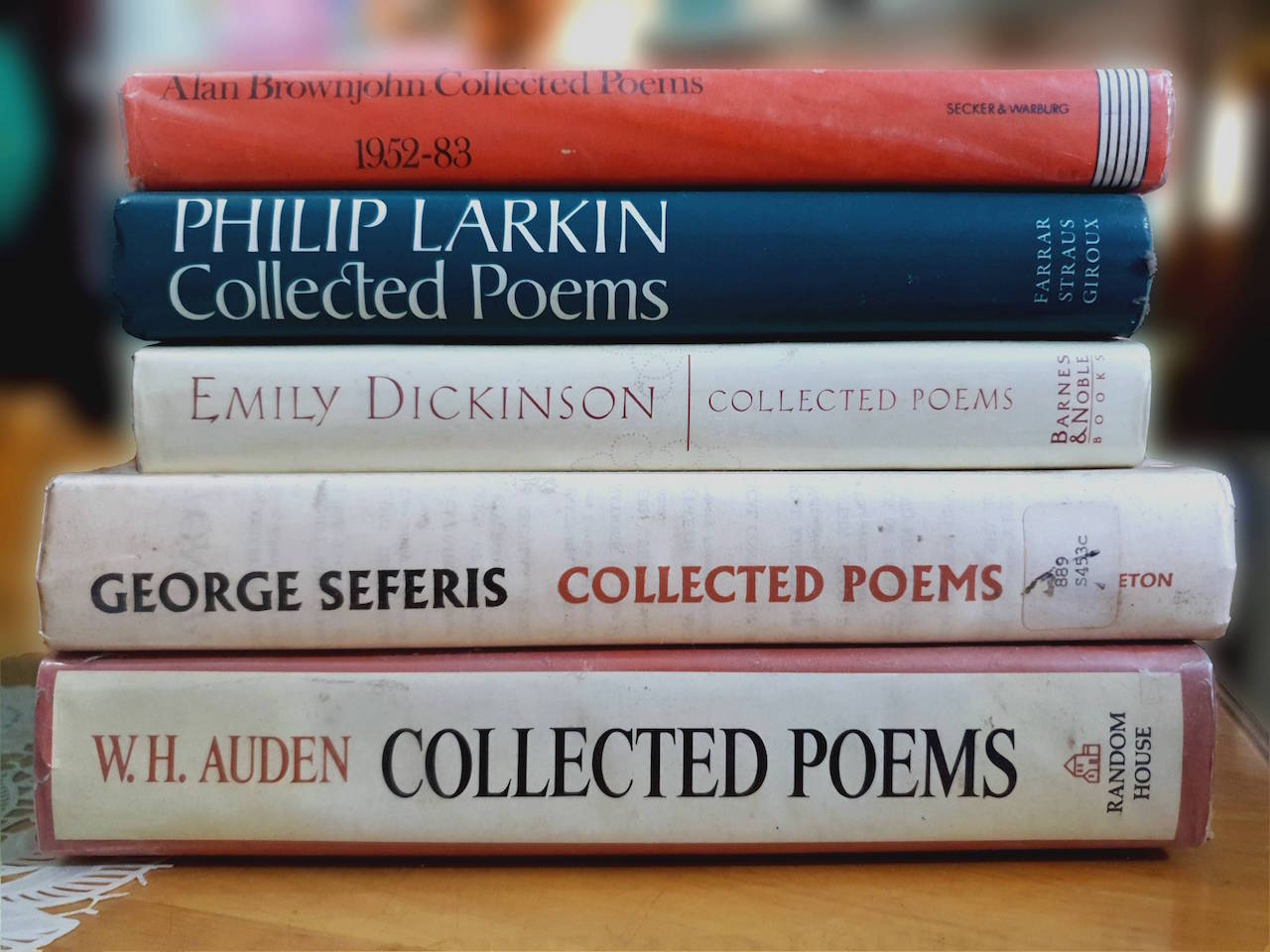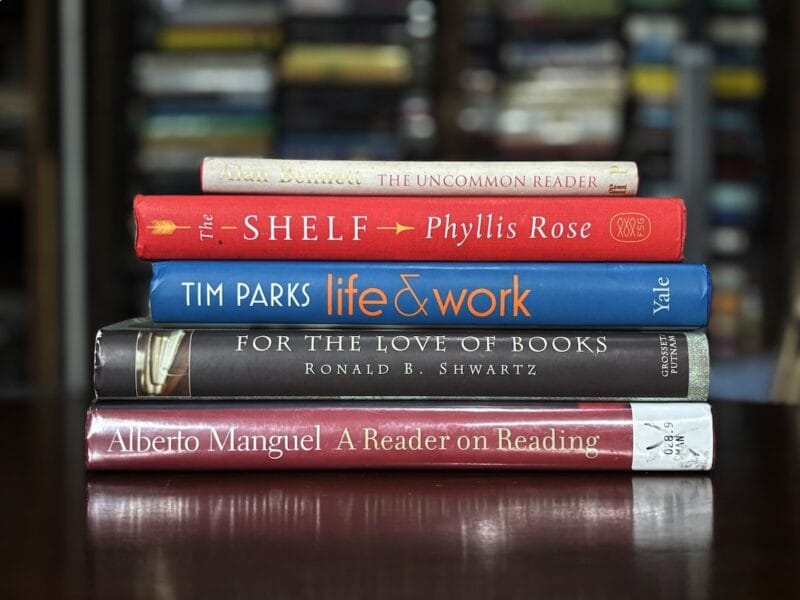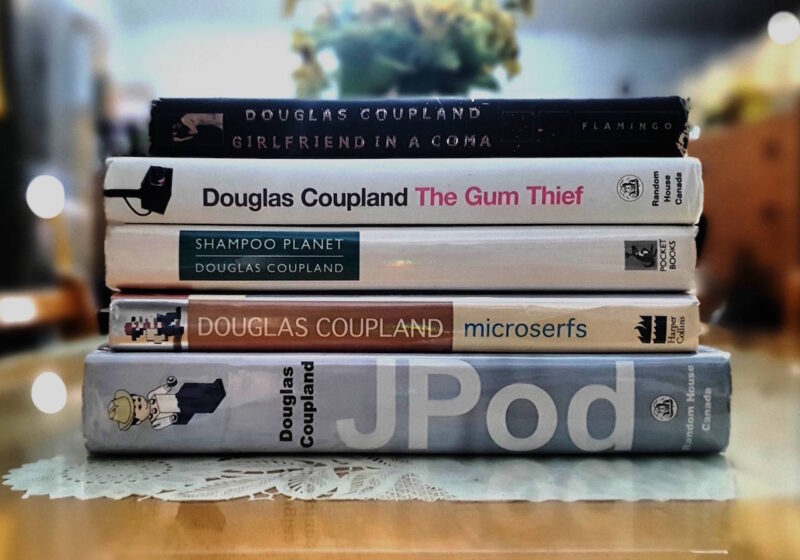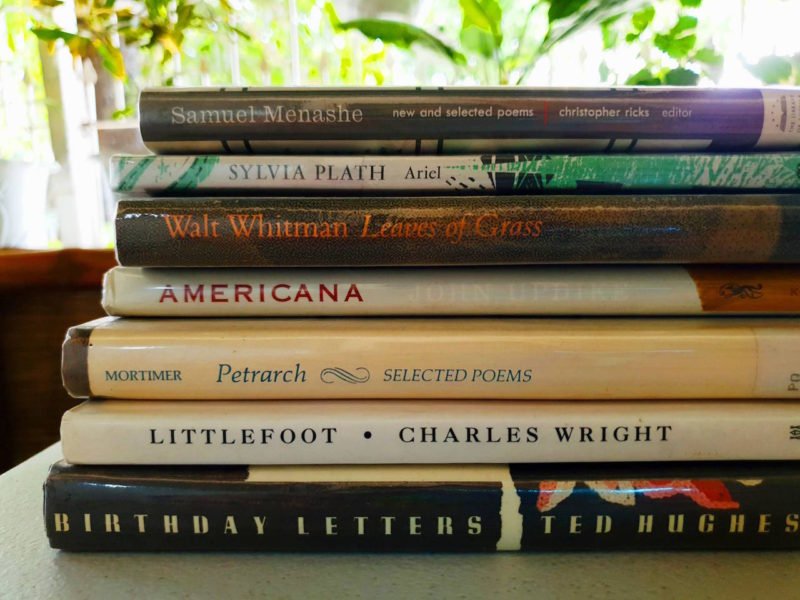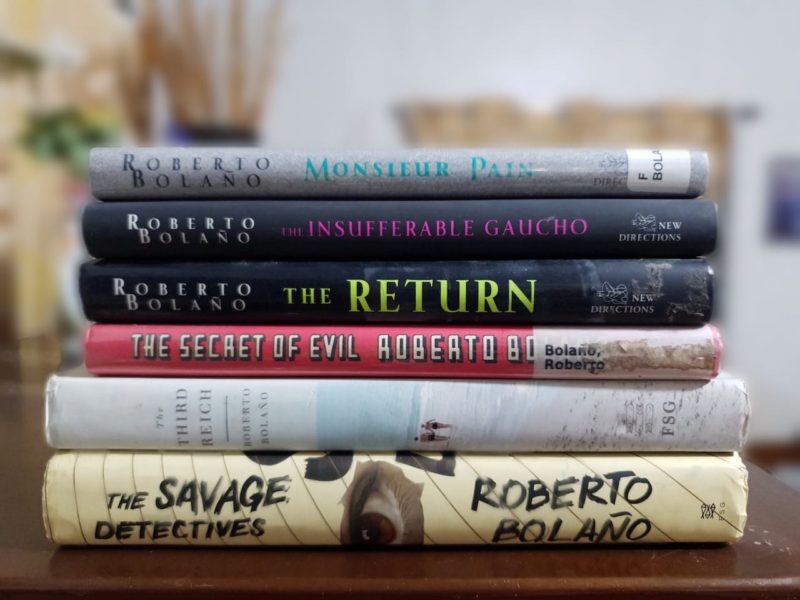Alan Brownjohn Collected Poems 1952-83
This is the first edition of Alan Brownjohn’s Collected Poems published in 1983; the latest (3rd) edition was published in 2006, with additional 140 poems. Though Brownjohn’s poems appear to be about straightforward human observations, easily understood, and laced with soft satire, they are often much more.
Brownjohn was asked in one of his interviews what he hoped readers would take away from his work, and he responded that he liked it when people assumed his poems tasted like lemonade but hit them like vodka at the end.
Philip Larkin Collected Poems
While Philip Larkin was one of the most widely read, admired, and respected poets in the English-speaking world, his work was only widely published in a small number of publications throughout his lifetime. His posthumous anthology of poetry, Collected Poems, was compiled and published by Anthony Thwaite and Faber & Faber in 1988. This updated edition by Farrar, Straus and Giroux (2004) presents Larkin’s work in the sequence he chose and preserves everything he published in his lifetime which, ultimately, could be considered as his “own” collected poems.
Emily Dickinson Collected Poems (Barnes & Noble ed. 1993)
Dickinson’s poetry explores the inner landscape of the human soul while striving for the sublime. For the most part, she eschewed the conventions of traditional rhyme and meter in favor of off-rhymes, dashes, and other unconventional devices.
Editors Mary Loomis Todd and Thomas Wentworth Higginson compiled the first three volumes of Emily Dickinson’s poetry and published them posthumously in 1890, 1891, and 1896 as Collected Poems of Emily Dickinson. Since then, Dickinson’s singular poetic voice has cemented her place among the greatest American poets of all time.
George Seferis Collected Poems
Only a few poets of his time were as interested in tradition as George Seferis, and he actively participated in the development of an all-encompassing poetic vision. No matter what connections it may have with other cultures’ literary traditions, Seferis’ poetry comes first and foremost from a tradition that is eminently Greek in character.
In this Collected Poems (1981), Seferis employs simply the essentials, yet the result is always powerful and eloquent statement. As Archibald MacLeish put it, “a translation worthy of Seferis” is to praise it “as highly as it might be commended.” This edition was translated by Edmund Keeley and Philip Sherrard, the “right” translators for Seferis’ work.
W.H. Auden Collected Poems
First published in 1945, this collection edited by Edward Mendelson in 1976 contains all of the poems that W.H. Auden intended to save, in the versions that he approved in the end. All of his earlier collected editions, as well as all of his shorter poem volumes published after that, are included in this collection.
Further Reading
The vodka in the verse by Anthony Thwaite, The Guardian
How to Read and Talk About Poetry by Jessica Flynn, National Endowment for the Arts
A Guide to Emily Dickinson’s Collected Poems by Poets.org
10 Reasons to Begin Reading Poetry by Rebecca Hussey, Book Riot
